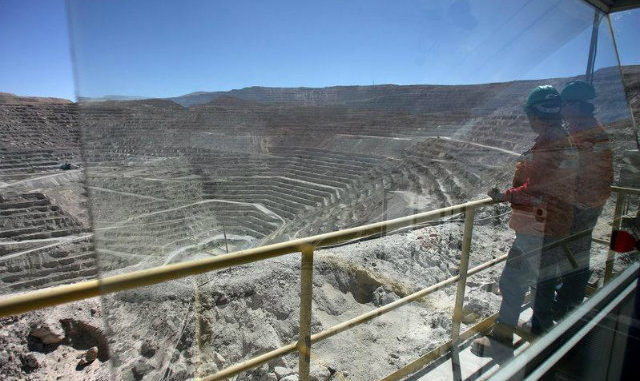
SANTIAGO – Workers at Chile’s Escondida copper mine, the world’s largest, ended a 24-hour strike on Friday but could put down their tools again next week over the company’s planned layoffs, the union said.
Their strike began on Thursday to protest recent layoffs affecting about 3% of the operation’s workforce.
Workers resumed their activities at the mine without incident at 8 a.m. local time (1100 GMT), union official Carlos Allendes told Reuters. Workers plan to strike again on Wednesday unless the company reverses its plan to fire workers, he added.
Majority owner and operator BHP (ASX, NYSE:BHP) (LON:BLT) had said the downsizing was part of ongoing adjustments to the mine’s workflow. But Escondida’s 2,500-member main union said in a statement (in Spanish) the strike was ‘massively backed’, resulting in total work stoppage, and an act of “retaliation” for the 43-day strike that took place early this year, which translated into roughly $1 billion in lost revenue for BHP.
It had decided to lay off 120 workers, or approximately 3 percent of the mine’s workforce, amid adjustments to its operations.
BHP did not respond to requests for comment.
Escondida mine in northern Chile – responsible for about 5% of the world’s total copper output – failed to produced more than 120,000 tonnes of the red metal due to the February strike, which became the longest private-sector mining strike in the country’s history.
The strike came only a day after unionized workers at Southern Copper’s (NYSE:SCCO) Peruvian operations started an indefinite strike, affecting all of the company’s operations in the country, the Mining.com reported.
The company, a subsidiary of Grupo Mexico, is the world’s fifth largest copper miner in terms of output, and Peru is the second-largest producer.
Rio Tinto and Japanese companies such as Mitsubishi Corp also hold stakes in the mine.
Chile is the world’s biggest copper producer, and sales of the metal make up for about 60% its export earnings.



